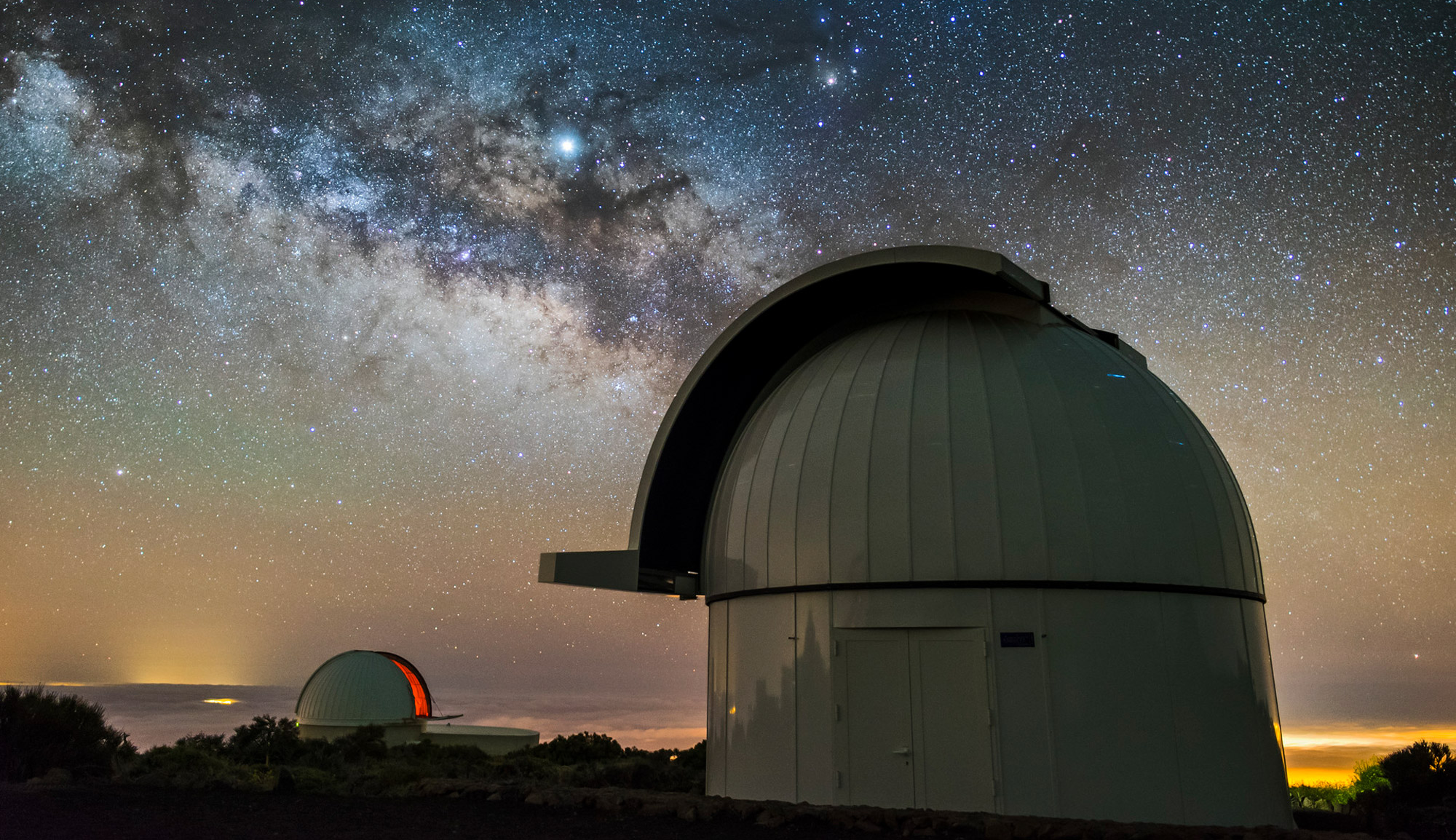
The Milky Way galaxy fills the dark sky above Teide Observatory in Tenerife, Canary Islands. MIT students spent three-and-a-half weeks at the Astronomy Field Camp here in January, helping operate MIT’s Artemis telescope (left) and the IAC 80 telescope (right) while pursuing research projects on astronomical objects.
PHOTO: D. PADRÓN
On this island in the Atlantic 180 miles off the African coast, against a dark sky unpolluted by city lights, the Milky Way dazzles.
“Growing up outside New York City and going to school in Boston, I’ve never had very dark skies, so this is the first time I’ve seen so many stars,” says Kaylee Barrera ’26. “Looking up at that every night inspires so much curiosity.”
Nine undergraduates from MIT’s Department of Earth, Atmospheric and Planetary Sciences spent the entire Independent Activities Period in January participating in an Astronomy Field Camp hosted by MIT and the Institute of Astrophysics of the Canaries. Also on site were Michael Person ’92, SM ’01, PhD ’06, director of the MIT Wallace Astrophysical Observatory, and a graduate teaching assistant and postdoctoral teaching assistant.
A capstone of the Observational Astronomy Program, the camp allows students to work in a professional astronomical observatory while developing their own research projects.
“The students are using the telescopes during the night and analyzing data during the day, gaining an understanding of the life of an observational astronomer,” says Person. “They deal with the weather, they deal with finicky equipment, they have a project and a deadline. At the end they give a presentation to senior faculty at the Institute of Astrophysics of the Canaries.”
Much of the work involves photometry, imaging parts of the sky and measuring differences in light emitted from astronomical objects. This year’s projects included research into brown dwarfs, celestial bodies larger than a planet but smaller than a star, and the transits of exoplanets beyond our solar system.
“It makes me feel impressed with the grandeur of the creation around us,” says Person. “Getting out here and having this experience lets the students know if this is the kind of feeling they want to have in their careers.”
The most remarkable thing she saw through the telescope was “definitely” a supernova, or star explosion, says Barrera, adding that her first trip abroad has helped her decide on postcollege plans. “Being here has really solidified for me that I want to go into astronomy research.”